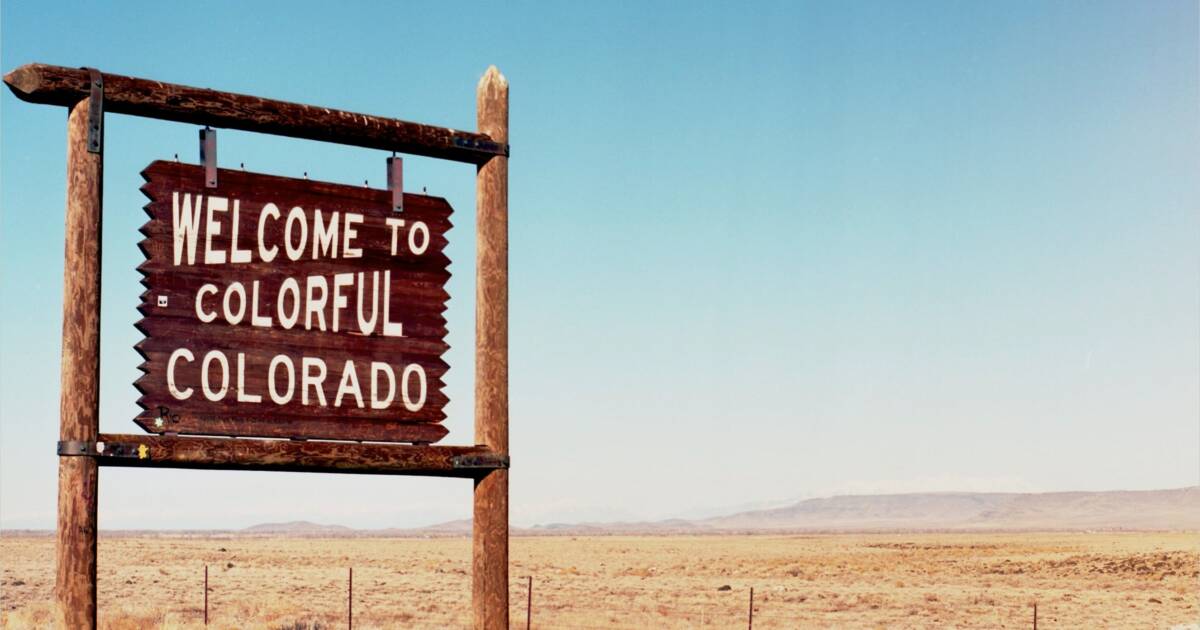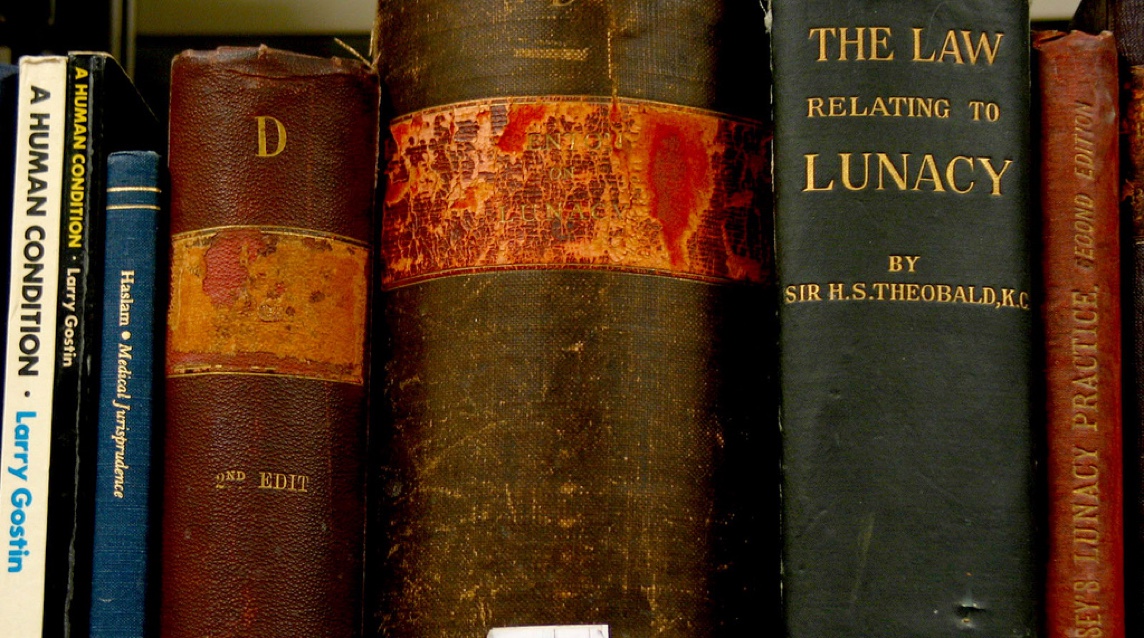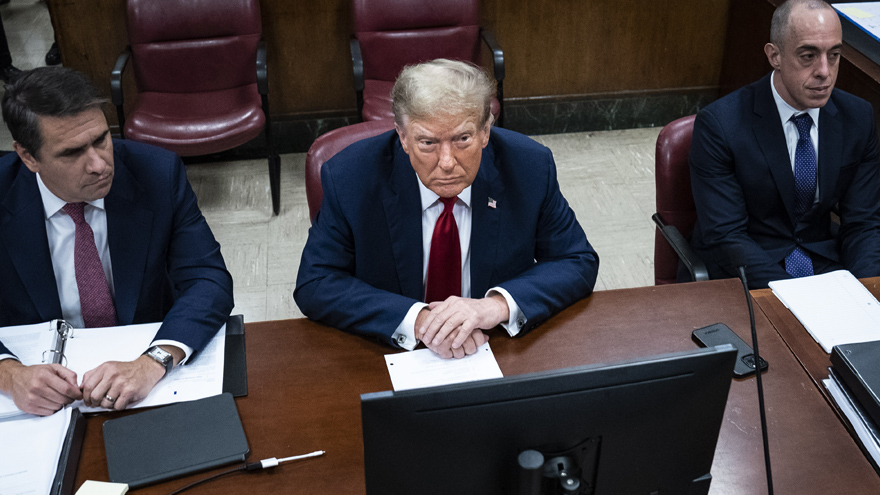I have been following the Colorado Trump ballot removal, and I agree with David Thornton’s rundown of the facts and his deeper dive today. George Conway wrote in The Atlantic (paywall) on Wednesday that it’s not the ruling itself, but the weakness of the dissents that make the case stronger. Erick Erickson disagreed, as do other lawyers I’ve read on social media.
The fact that there are divisions among a high court in Colorado, made up completely of Democrats who were appointed by Democrats, who tend to rule in supermajorities in many cases, because they simply agree and think alike, belies the groupthink present in those who believe “the walls are closing in” for Trump’s ballot access. In fact, the rush to get this ruling out, so SCOTUS can rule on it without crossing the Purcell principle line, before Super Tuesday, has created a major, and greatly desired, distraction for Trump’s legal team, and a possible own-goal for those who wish to see Trump barred from more ballots—past polling suggests this could actually help Trump’s election prospects.
Notably, Colorado Chief Justice Brian Boatright dissented, first on the grounds that the scope of Colorado’s election code doesn’t allow the courts to “decide whether a candidate engaged in insurrection.” Second, that the “Electors brought their challenge without a determination from a proceeding (e.g., a prosecution for an insurrection-related offense) with more rigorous procedures to ensure adequate due process.” I agree with many legal minds, that the Fourteenth Amendment, particularly Section 3, doesn’t require a determination from a proceeding, given that Civil War participants were generally not charged and tried, yet the law applied to them. But this is in regard to a state court ruling on state law, not activating Constitutional protections.
Two things are likely. One, that the U.S. Supreme Court will grant this case a hearing, and rule—in some way—on it. Two, that whatever ruling comes out of SCOTUS will be divisive, politically.
The fact that Colorado’s high court justices could not agree among themselves on the grounds or the outcome of the ballot challenge, and that all three dissenters published individual dissents, because they couldn’t agree on the grounds for dissent, exposes the weakness of the ruling itself. It’s not necessarily weak in its legal arguments (I am no lawyer to judge that), nor is it weak in its factual basis—the facts of Trump’s actions and what happened on January 6th nearly four years ago are undisputed. The weakness comes from the fact that we are all in uncharted territory, and no maps exist for this kind of action. At least none since 1865. The Colorado justices could not agree, and the ones who did, a bare majority, rushed their ruling out so SCOTUS could review and rule on it in a timeline.
SCOTUS will have little time to review and rule on this case. The most likely scenario could very well be for the Justices to agree with Justice Boatright and reverse the ruling. That would restore Trump to the Colorado ballot, and quash and other state cases which might be in the pipeline. It would also be a huge boon to Trump in actual competitive states.
There’s little downside to Trump and his campaign from this Colorado case. If Trump’s not on the primary ballot, he might still win the primary as a write-in. Without Colorado, Trump is still positioned to be the GOP nominee, unless something changes at the polls in states where he is definitely on the ballot. Come November, the voters who like Trump, or even some undecideds who might be swayed by the “political persecution” tropes, are more likely to show up at the polls to cast their votes.
Trump benefits from being prosecuted. Many who don’t like Trump believe that the best way to defeat him is at the ballot box. Distractions from the actual political race, with the courtroom dramas, indictments, trials, and now ballot access, help Trump keep the focus off other candidates, and cement his place as the frontrunner, or the presumptive nominee. I mean, if nobody thought Trump was going to be the nominee, none of this ballot access stuff would matter, would it?
If Trump is restored to the Colorado ballot, it would be a victory for his campaign. The worst case would be if SCOTUS rules that Trump is immune from prosecution for acts committed as President, and also rules that efforts to remove him from ballots are stillborn, that goes a long way toward removing the legal jeopardy Trump faces. One more ruling could kill special counsel Jack Smith’s case: if 18 USC § (c)(2), the law so widely cited by the January 6th Select Committee (and all over Liz Cheney’s book), passed in 2002 as part of the Sarbanes-Oxley Act, is found to not apply to the Capitol riot, then Trump cannot be charged with it. That law makes it a felony to “corruptly…otherwise obstructs, influences, or impedes any official proceeding, or attempts to do so.”
If the largely ceremonial joint session of Congress to count electoral votes isn’t part of that definition of “proceeding,” then a number of the January 6th convictions might be overturned (this won’t affect those charged with harming police officers or destroying property). It’s really ironic that the Trump case hinges on proving a Constitutional duty of Congress to count votes doesn’t carry the weight to actually change election results, which is exactly the opposite of what the Eastman memo, and Trump’s elaborate plans to submit fake electors, aimed to do. Trump wanted the January 6th joint session to be very instrumental in determining the winner of the election, and now his legal theory claims it’s not really an official proceeding, and that he didn’t disrupt it (the crowd did).
Trump winning all the SCOTUS rulings will make his campaign stronger than ever. It will be the biggest own-goal in the history of American jurisprudence, and we can all thank Colorado for that. On the other hand, there’s little downside for Trump if SCOTUS rules against him. He uses that to raise money to pay for more legal fees. Being a professional defendant can be quite enriching.
Even if Colorado is correct in the legal, factual, and moral sense to remove Trump from the ballot, the way it was done is risky. I am thinking they should not have taken the risk. I am not the only one who thinks that: three Colorado Supreme Court justices agree.
Follow Steve on Twitter @stevengberman.
The First TV contributor network is a place for vibrant thought and ideas. Opinions expressed here do not necessarily reflect those of The First or The First TV. We want to foster dialogue, create conversation, and debate ideas. See something you like or don’t like? Reach out to the author or to us at ideas@thefirsttv.com.







